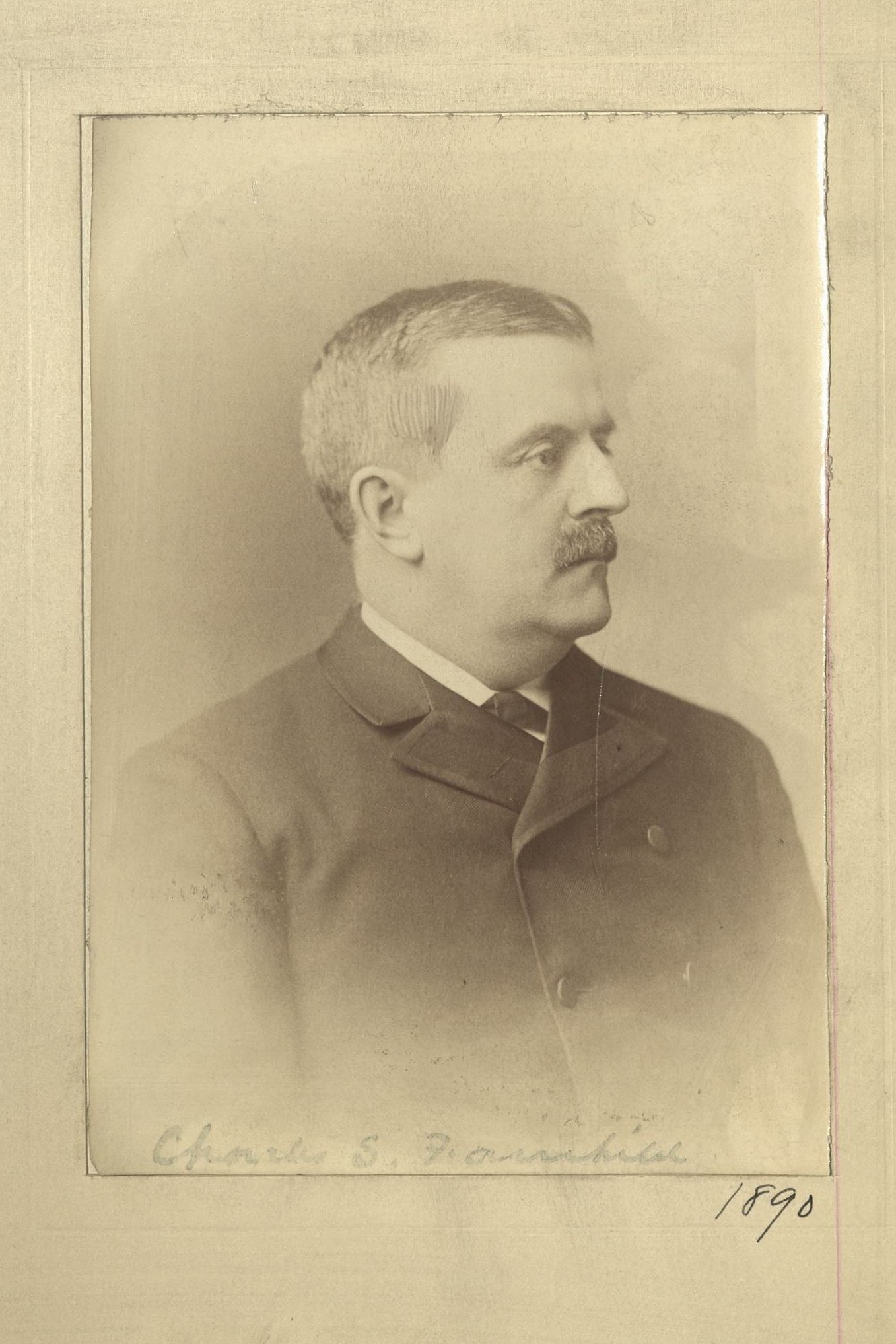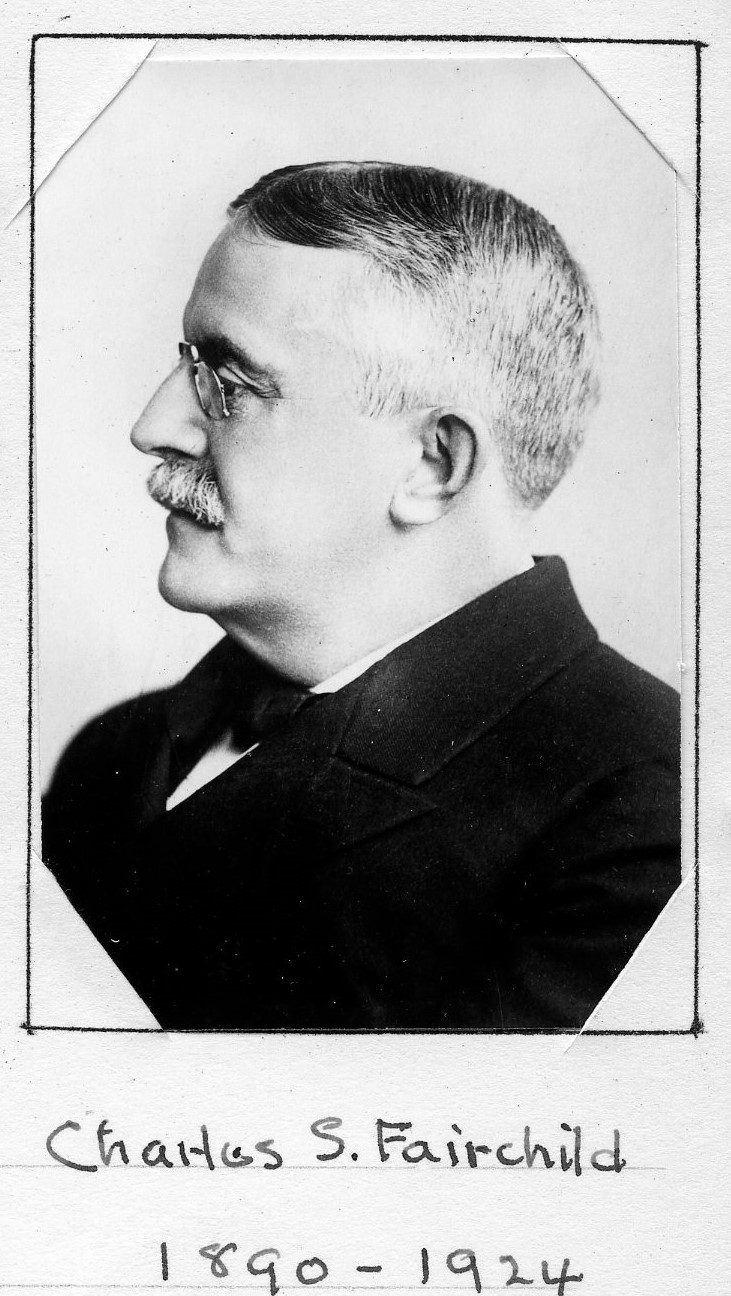Lawyer/U.S. Secretary of the Treasury
Centurion, 1890–1924
Born 30 April 1842 in Cazenovia, New York
Died 24 November 1924 in Cazenovia, New York
Buried Evergreen Cemetery , Cazenovia, New York
, Cazenovia, New York
Proposed by John Bigelow and Francis F. Marbury
Elected 1 March 1890 at age forty-seven
Proposer of:
Century Memorial
In the unremitting labor to dispel the illusions and discard the half-hearted compromises whereby, in the last two decades of the Nineteenth century, our financial ship was left to drift rudderless at the mercy of every shifting wind of economic fortune, Charles Stebbins Fairchild had a more important part than his fellow-Centurions are probably aware; certainly more than he himself ever claimed.
Fairchild possessed a fund of placid humor; it kindled on such occasions as when La Follette, in a senatorial crazy fit of 1908, bracketed him as one of the hundred multi-millionaires who owned the whole United States and ground under their heel the rest of the population. In the Graham Library, where in his later years he would often join the group of a Saturday afternoon, Fairchild used smilingly to characterize his own career in the cabinet and the Treasury as a freak of chance. Daniel Manning, Cleveland’s right-hand man in New York politics, was slated for the Treasury in 1885. He sent for Fairchild, asking him to take the post of First Assistant Secretary. “I told Mr. Manning,” Fairchild informed the group in the Graham Library, “that I was greatly honored, but that I knew nothing whatever about finance.” To this, his narrative proceeded, Manning replied: “Neither do I; but I am told that there are half-a-dozen $2,000-a-year chiefs of bureaus in the Treasury who know all about it and are able to run the government.”
The story, told with Fairchild’s characteristic humor, was far from doing justice either to the Secretary of 1885 or to the Assistant Secretary who, on Manning’s death in 1887, was promoted to his place. The new secretary had at once to make difficult decisions and create unpopular precedent; for on each recurrence of a surplus public revenue, our awkward fiscal machinery of that day would engulf the gold reserves of our banks as completely as if the gold had gone to India to make bangles for the natives. In that whimsical situation, business revival would begin by expanding customs revenues and then by calling for greatly increased bank loans; whereupon the Treasury, having received gold payment for the import duties, locked up the gold in its vaults at Washington, thus abruptly curtailing the banks’ capacity to lend and forcing acute money stringency on the hapless merchant in his busiest season.
Fairchild had some more or less exhausting conferences with Congress in the matter. One may be sure that he never quarreled with the legislators; that was not his way. It was the calm, persistent pressure from a public man who clearly knew his business that broke the foolish deadlock and enabled the Treasury to put back the idle gold, abundantly secured, on deposit in private banks. The discussion had not then reached the stage at which a proper elastic paper-currency system could be definitely outlined; the victory had first to be won over free silver coinage. When that vital question hung in the balance, during Cleveland’s third campaign of 1892 and after the reckless experiments of the Harrison administration, it was pre-eminently Fairchild, in whose judgment Cleveland had the utmost personal confidence, who publicly took his stand beside his former chief, and helped to make possible Mr. Cleveland’s rejection of another silver compromise. But Fairchild’s public activities did not end with this. They really never ended; work for sound principles in government, currency and banking was his instinct, and he never relinquished it while physical capacity for the task remained. He was always the Reform Club’s mentor in its proposals for a scientific currency, whose principles came so close to the subsequently-enacted Federal Reserve Act. He was the active protagonist in 1917, at the age of 75, for the American Constitutional League, organized “to uphold and defend the American Constitution against all foreign and domestic enemies.”
Alexander Dana Noyes
1925 Century Association Yearbook


